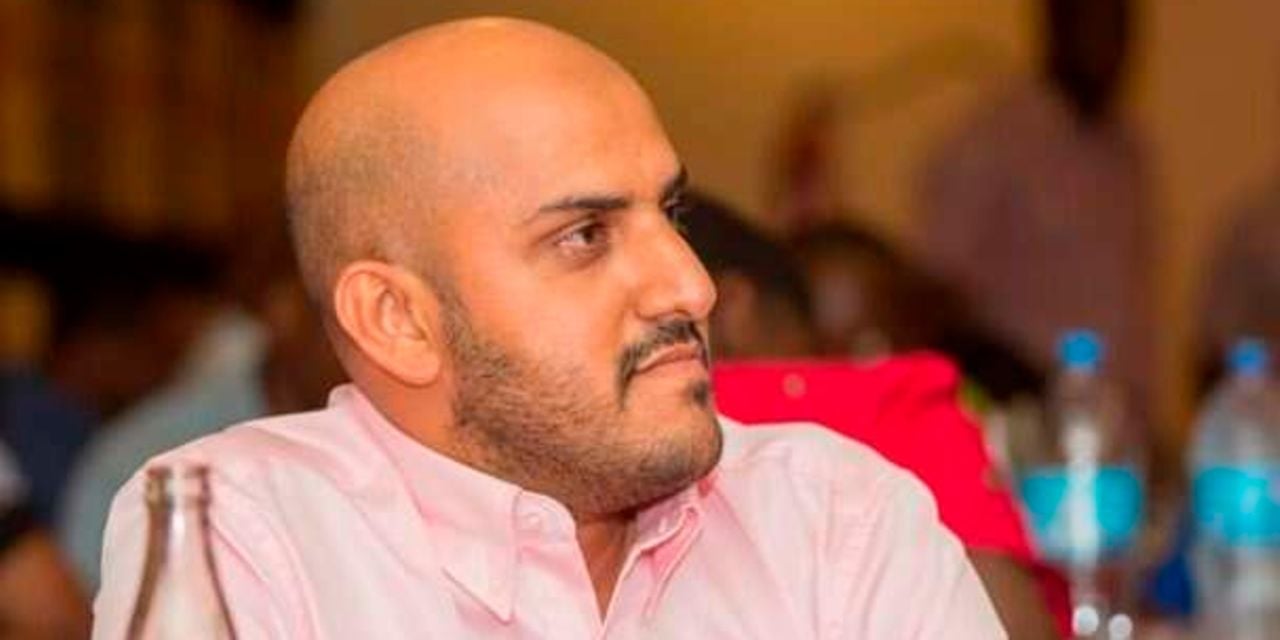Grapevine
Tanzanian Oil Tycoon Ally Edha Awadh Hiding in Kenya After Scamming Russian Oligarchs Billions
The businessman reportedly claimed to have financed Ruto’s 2022 presidential campaign, using these connections to intimidate competitors in the energy sector.

NAIROBI – Tanzanian businessman Ally Edha Awadh, founder of Lake Oil Group, is reportedly hiding in Kenya after allegedly defrauding Russian oligarchs of approximately 4 billion shillings in a petroleum storage scheme gone wrong.
According to sources close to State House, the scandal emerged when Russian oligarchs, seeking to store petroleum products during the Russia-Ukraine conflict, approached Awadh’s Lake Oil facilities for storage services.
The arrangement, which was meant to provide safe haven for Russian petroleum assets, allegedly became a sophisticated fraud operation.
Awadh built his energy empire starting as a student at Brock University in Canada.
His Lake Oil Group has grown into one of East and Central Africa’s fastest-growing energy trading and transportation conglomerates, operating under both Lake Oil and Lake Gas brands.
The company significantly expanded its Kenyan operations in 2017 after acquiring all fuel stations belonging to Hashi Energy, following approval from the Competition Authority of Kenya.
The group also operates a cooking gas subsidiary that has become central to the current controversy.
Sources indicate that Awadh leveraged alleged political connections to President William Ruto’s administration to fast-track his business operations.
The businessman reportedly claimed to have financed Ruto’s 2022 presidential campaign, using these connections to intimidate competitors in the energy sector.
Working closely with Davis Chirchir, who served as Energy Cabinet Secretary before his current role as Roads and Transport CS, Awadh established a controversial 25,000-metric tonne liquefied petroleum gas storage facility in Kilifi along Kenya’s coast.
The Kilifi project has faced significant legal challenges. In April 2025, the National Environment Tribunal revoked Lake Oil’s Environmental Impact Assessment permit, which had been issued by the National Environment Management Authority in December 2019.
The tribunal also ordered directors of both Lake Oil and Vipingo Development Limited to pay a 2 million shilling fine for defying construction freeze orders.
Local residents had petitioned against the project, expressing serious concerns about environmental impact and safety risks associated with the major LPG facility in their community.
The company’s troubles deepened in June 2025 when regulatory authorities blocked the distribution of a massive 12,000-metric-tonne cooking gas shipment.
The Kenya Bureau of Standards rejected the entire consignment after tests revealed dangerously low levels of ethyl mercaptan, a crucial odorant that enables users to detect gas leaks.
In a letter dated June 12, 2025, KEBS Coast regional manager Hilda Keror declared the shipment unfit for consumer use, stating that “the ethyl mercaptan levels is still below the required limits specified in KS 91:2022 Kenya Standard Liquefied Petroleum Gas- Specification.”
The absence of adequate ethyl mercaptan would have made it nearly impossible for consumers to detect dangerous leaks, potentially leading to fatal explosions.
Mysterious lifestyle
Despite his business prominence, Awadh’s personal life remains shrouded in mystery.
Sources describe a man who fears for his life due to his alleged international business dealings.
Those familiar with his operations say he maintains a secretive lifestyle, with little known about his marriage or private residences.
The businessman reportedly operates from a luxury apartment in Kilifi, where he maintains a low profile while managing his business empire through a team that includes Paul Ochieng as head of quality control, Sharon Wanjiku as sales manager, Carolyne Sankok as environment officer, and Peter Tunje.
The revelations have reportedly caught State House off guard.
Sources indicate that power brokers were initially unaware of Awadh’s alleged tax evasion schemes and hidden fortunes in tax havens, explaining why President Ruto had not officially launched the businessman’s Kenyan plants.
The controversy threatens to become a political liability for the Ruto administration, particularly given the businessman’s alleged claims of campaign financing and close ties to government officials.
The scandal has broader implications for Kenya’s energy sector.
Nigerian oil marketing company Asharam Synergy, a subsidiary of Sahara Group, has announced plans to build a competing LPG facility in Mombasa after leasing Kenya Petroleum Refineries Ltd land for 31 years.
Meanwhile, another Tanzanian tycoon, Rostam Aziz’s Taifa Gas, is reportedly struggling to survive in the Kenyan market amid the current industry turbulence.
As investigations continue, the case highlights the complex web of international business dealings, political connections, and regulatory challenges facing Kenya’s energy sector.
The allegations against Awadh, if proven, could have far-reaching implications for both Kenya-Tanzania business relations and the country’s energy security.
The businessman’s current whereabouts remain unknown, though sources maintain he is hiding somewhere in Kenya as authorities and allegedly defrauded Russian parties seek to recover the missing billions.
This story continues to develop as more information becomes available.
Kenya Insights allows guest blogging, if you want to be published on Kenya’s most authoritative and accurate blog, have an expose, news TIPS, story angles, human interest stories, drop us an email on [email protected] or via Telegram
-

 Grapevine2 weeks ago
Grapevine2 weeks agoRussian Man’s Secret Sex Recordings Ignite Fury as Questions Mount Over Consent and Easy Pick-Ups in Nairobi
-

 News1 week ago
News1 week agoTHE FIRM IN THE DOCK: How Kaplan and Stratton Became the Most Scrutinised Law Firm in Kenya
-

 Investigations2 weeks ago
Investigations2 weeks agoMulti-Million Dollar Fraud: Three Kenyans Face US Extradition in Massive Cybercrime Conspiracy
-

 Economy1 week ago
Economy1 week agoIran Demands Arrest, Prosecution Of Kenya’s Cup of Joe Director Director Over Sh2.6 Billion Tea Fraud
-

 Business1 week ago
Business1 week agoA Farm in Kenya’s Rift Valley Ignites a National Reckoning With Israeli Investment
-

 Africa2 weeks ago
Africa2 weeks agoFBI Investigates Congresswoman Ilhan Omar’s Husband’s Sh3.8 Billion Businesses in Kenya, Somalia and Dubai
-

 Grapevine5 days ago
Grapevine5 days agoA UN Director Based in Nairobi Was Deep in an Intimate Friendship With Epstein — He Even Sent Her a Sex Toy
-

 News2 weeks ago
News2 weeks agoTragedy As City Hall Hands Corrupt Ghanaian Firm Multimillion Garbage Collection Tender





















